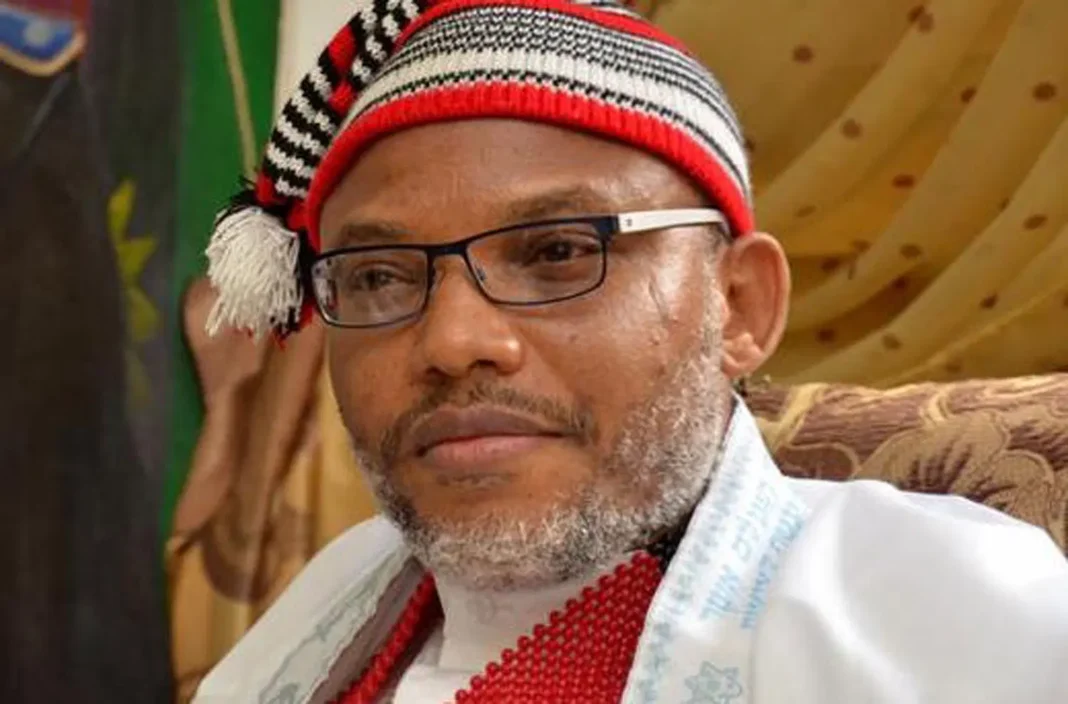Tension rose in parts of Abuja on Thursday as the United States Embassy issued a security advisory to its citizens in Nigeria, cautioning them to avoid the Central Area and major government buildings ahead of a planned demonstration tagged #FreeNnamdiKanuNow. The advisory urged American nationals to steer clear of large gatherings and maintain personal security awareness as security agencies heighten surveillance around key locations in the Federal Capital Territory.
According to the alert, the Embassy said the protest could attract large crowds and that the potential for unrest warranted caution. It advised U.S. citizens to limit movement and avoid government facilities, markets, and major intersections. Nigerian security operatives have since increased patrols around the Three Arms Zone and major junctions in the city, including the Unity Fountain and Eagle Square, areas that have become common rally points for civil protests in the capital.
The warning comes as renewed calls for the release of Nnamdi Kanu, the detained leader of the Indigenous People of Biafra, gather momentum both online and across the southeast. Social media has been awash with mobilisation efforts under the #FreeNnamdiKanuNow banner, with organisers describing the protest as a peaceful call for justice and adherence to court orders on his case. Security agencies, however, have maintained a visible presence, citing intelligence reports that some elements could hijack the demonstration for violent ends.
This latest development once again thrusts Kanu and the IPOB movement back into the national spotlight. Nnamdi Kanu, a British-Nigerian activist, founded the Indigenous People of Biafra in the early 2010s as part of renewed agitation for the restoration of the short-lived Republic of Biafra that seceded from Nigeria between 1967 and 1970. Through his London-based Radio Biafra broadcasts, Kanu galvanized a large following across the southeast and among members of the Nigerian diaspora, framing IPOB’s mission as a peaceful push for self-determination.
Kanu’s activism drew sharp reactions from the Nigerian state. Authorities accused IPOB of promoting division and violence, particularly after several sit-at-home orders led to economic paralysis in parts of the region. In 2017, the Nigerian government formally proscribed IPOB as a terrorist organisation, a designation that Kanu’s supporters continue to reject. Human rights groups have also raised concerns about excessive force in the government’s response to pro-Biafra protests.
The IPOB leader was first arrested in 2015 by operatives of the Department of State Services and charged with treasonable felony and other offences linked to his broadcasts. He was later released on bail but fled Nigeria in 2017 after a military operation in Abia State. For several years, he lived abroad and continued his activism through online platforms. In June 2021, he was apprehended abroad and brought back to Nigeria to face fresh charges. Multiple credible reports indicated he was detained in Kenya and flown to Nigeria under circumstances that sparked diplomatic controversy. His family and lawyers described it as an extraordinary rendition, an accusation that both the Nigerian and Kenyan authorities have denied.
Since then, Kanu has remained in the custody of the Department of State Services in Abuja. His court appearances have drawn significant public attention, with multiple adjournments and changes in the composition of the legal teams on both sides. Nigerian courts have repeatedly postponed hearings on his bail applications, citing security concerns and procedural issues. Despite these legal hurdles, his lawyers continue to push for his release, referencing previous rulings that questioned the legality of his extradition.
The detention has fueled widespread tension across the southeast, where supporters periodically enforce sit-at-home orders that paralyse business activities. Security forces have in turn intensified operations against suspected armed groups said to be linked to IPOB, leading to clashes and civilian casualties. The region has experienced episodes of violence that residents say have worsened insecurity and economic hardship.
Internationally, Kanu’s case has continued to attract attention. The United Kingdom, where he holds citizenship, has urged that due process be observed, while rights organisations have called for humane treatment and a fair trial. Observers view the case as a test of Nigeria’s justice system and its capacity to balance national security with civil liberties.
The planned #FreeNnamdiKanuNow protest adds a fresh layer to an already delicate security situation in the country. While organisers insist on peaceful demonstration, security analysts caution that mass gatherings in politically charged contexts often carry the risk of escalation. The Abuja police command has assured residents of safety and urged calm, adding that lawful protesters would be protected while anyone attempting to breach public order would face arrest.
The U.S. Embassy’s advisory underscores growing concern among foreign missions about the volatility of demonstrations in the capital. Similar alerts were issued in the past during periods of political tension, especially when protests coincided with trials or government policy changes. Analysts believe that the renewed agitation reflects deeper frustrations over prolonged detention and unaddressed ethnic grievances that date back decades.
As of Thursday evening, authorities had not announced any restriction of movement, though intelligence units reportedly continued monitoring online mobilisation channels. The Federal Government has made no new public statement on the protest, while courts are expected to resume hearing Kanu’s case in the coming weeks.
Samuel Aina

